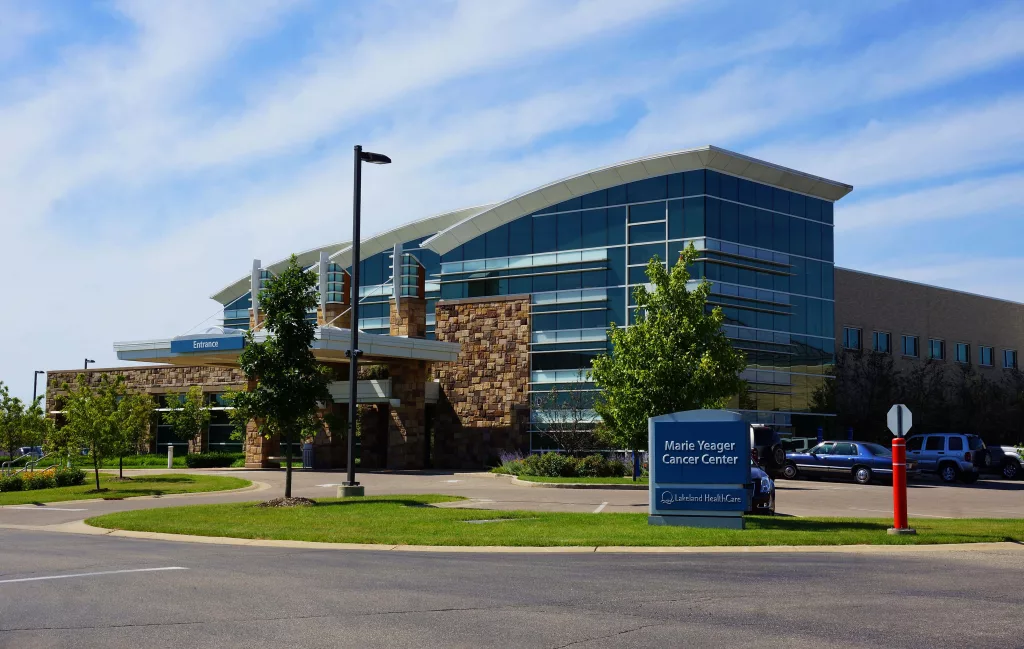We frequently hear in every day conversation about a friend, neighbor, family member, colleague or just an acquaintance who is impacted by cancer in Michigan’s Great Southwest and the latest comprehensive report from Spectrum Health Lakeland shows no signs of that prospect waning. In fact, for all of 2017 — the most recent full year data available — the number of cancer cases at Lakeland increased by 15-percent from the previous year of 2016.
The report also shows that over half of those diagnosed locally with cancer were women and more than two-thirds were 60-years old or older.
Spectrum Health Lakeland has released the 2018 Cancer Care Report from the Marie Yeager Cancer Center which outlines data collected to create more meaningful improvements for cancer diagnosis, treatment, rehabilitation, and support. In 2017, a total of 1,089 cancer cases were treated at Lakeland and added to the National Cancer Data Base (NCDB), an increase of 15-percent from the previous year. Of these patients:
- The four most common cancer sites: lung, female breast, prostate, and colorectal
- Gender distribution: 52.7-percent were female and 47.03-percent were male
- Age distribution: 68.06-percent were 60 years and older, 29.66-percent were between the ages of 30 and 59, and 1.74-percent were 29 years or younger
The report also highlights the addition of multiple new cancer technologies now available to patients in southwest Michigan. SpaceOAR, a temporary injectable gel, is being used to protect the rectum in men and reduce the short- and long-term side effects of radiation therapy for patients undergoing treatment for prostate cancer. It is the first and only prostate cancer spacing device to receive Food and Drug Administration (FDA) clearance.
In addition, Lakeland has begun to use SAVI SCOUT technology to make the day of breast cancer surgery easier for women and more efficient and precise for clinicians. Traditional lumpectomy procedures involve inserting a wire into the breast to help locate the tumor. Instead of wires, a small reflector the size of a grain of rice is placed into the breast prior to the day of surgery. During the procedure, the SCOUT system detects the reflector using its unique radar signal allowing surgeons to precisely target the affected tissue to pinpoint its location within 1mm, which can mean more successful surgeries, optimized breast conservation strategies, and enhanced outcomes for women.
Lakeland has partnered with the Michigan Radiation Oncology Quality Consortium (MROQC) to begin monitoring the average dose of radiation given to the heart in patients with cancer in the left breast. By implementing deep inspiration breath hold (DIBH), a technique in which the patient inhales to a specified level and then holds that breath during radiation delivery, patients are achieving lower levels of cardiac radiation, resulting in less risk for coronary complications later in life.
You can find additional data by visiting the link below:
http://www.lakelandhealth.org/cancer
Here’s a pdf of the full report itself:






